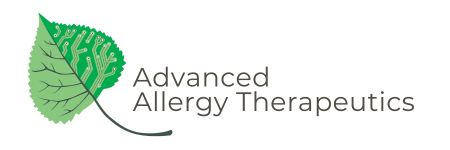Allergies, Sensitivities & Intolerances

What Happens When Your Body Overreacts to Harmless Substances
Allergies and sensitivities are caused by an inappropriate reaction to harmless substances and occur when the body mistakenly perceives a harmless substance as harmful and reacts inappropriately, causing symptoms. Reaction occurs when the body encounters what is called an allergen. Exposure to an allergen can occur through contact with the skin, inhalation, injection or ingestion of the substance.
The word “allergy” comes from the Greek word “allos” which means “other”. It was first used in 1906 to describe an “abnormal reaction” in the immune system.
A “true allergy” is a reaction triggered by the immune system (an Immunoglobulin (Ig) response on a blood test), however there are a vast number of symptoms and conditions caused by sensitivities that may or may not involve the immune system. With reactions involving food, a large percentage of the population believe they have allergies, yet fewer than 5% actually have true allergies. In fact, many suffer from undiagnosed food sensitivities or intolerances.
Current Medical treatment for allergies typically includes total avoidance of the allergen, medications to reduce the symptoms of the allergic reaction (antihistamines) or injections to desensitize the patient to the allergen (immunotherapy).
A blood test (that tests for (IgE) levels) is the gold standard for traditional allergy testing, but some people do not show allergic symptoms even if the IgE level is high or they may have symptoms to an item but there is not an IgE response on the test. Therefore, there is a limit to predicting the presence or severity of allergic reactions from Ig levels. However, AAT works on the organ systems of the body, so even if the immune system (an IgE) is involved, it is irrelevant to the effectiveness of the treatment.
Most patients who seek the AAT treatment do not have true allergies; their symptoms are likely to be caused by sensitivities with no immune involvement. Since there are few options for the treatment of sensitivities, other than avoidance, AAT provides a highly effective alternative. Symptoms caused by true allergies, however, also respond well to the treatment as the organs systems involved in the reaction are also addressed.
Food intolerances are typically due to a lack of a specific enzymes and cannot be treated with AAT, as this is a deficiency and not an error. For example, lactose intolerance refers to the inability to digest lactose due to a lack of an enzyme called lactase that breaks down lactose. AAT is therefore ineffective against this intolerance.
The use of the word “allergy” has become a generic term used by the public to describe allergies, sensitivities, and intolerances. The distinction of a true allergy based on immunoglobulin involvement is generally unknown. Therefore, the term “allergy” is often understood as a term for any negative reaction from exposure to a harmless substance. AAT treats the symptoms caused by any negative or inappropriate reaction regardless of if the symptoms are caused by allergies or sensitivities.
AAT does not treat cases of anaphylaxis or life-threatening symptoms. Strict avoidance is always advised in these cases.
DID YOU KNOW?
Certain types of allergies can be hereditary, meaning you can blame your parents not only for your looks but also for your allergies.
THE AAT EXPERT SYSTEM DOES NOT GUARANTEE ANY RESULTS.
While the AAT Expert System is highly effective in the relief of many symptoms associated with allergies or sensitivities, some cases do not respond.
The AAT Expert System does not treat cases of anaphylaxis or life threatening symptoms. Strict avoidance is always advised.
Food Sensitivities
Seasonal Allergies
Skin Conditions
Symptoms & Conditions
Items AAT Treats
Top Allergens in the U.S.
Allergies, Sensitivities & Intolerances
FAQ
Find an AAT Practitioner

© 2005-2025 AAT Business Development Group, LLC | All Rights Reserved | Website by Dion Design Group
